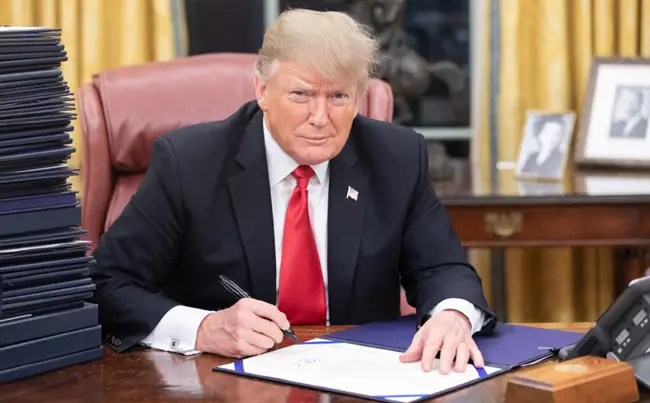Should Trump’s tax cuts be permanent?
The Tax Cuts and Jobs Act (TCJA) of 2017, a cornerstone of Donald Trump’s economic policy, brought significant tax relief to businesses and individuals alike, leading to robust economic growth and job creation. From a conservative perspective, making these tax cuts permanent is essential for maintaining economic stability, fostering long-term growth, and ensuring that American businesses and families continue to thrive. Here’s why Trump’s tax cuts should be made permanent.
Continued Economic Growth
The TCJA spurred significant economic growth by reducing the corporate tax rate from 35% to 21% and lowering individual tax rates across the board. These changes encouraged businesses to invest in expansion, research, and development, leading to increased productivity and job creation. Making these tax cuts permanent would provide businesses with the certainty they need to plan for the future, ensuring that this growth continues. The predictability of a stable tax environment is crucial for long-term investment decisions, which in turn drives sustained economic prosperity.
Increased Investment and Competitiveness
Lower corporate taxes made the U.S. more competitive globally, attracting investment from both domestic and foreign companies. This influx of capital has been instrumental in creating jobs and boosting wages. Permanently extending these tax cuts would solidify the U.S. as an attractive destination for investment, preventing capital flight to countries with more favorable tax environments. Keeping the U.S. competitive on the global stage is vital for maintaining its economic leadership and ensuring that American workers benefit from high-quality job opportunities.
Boosting Middle-Class Incomes
The TCJA not only benefited corporations but also provided tax relief to middle-class families by nearly doubling the standard deduction and expanding the Child Tax Credit. These changes increased disposable income for millions of Americans, allowing them to save, invest, and spend more freely. Making these tax cuts permanent would continue to empower middle-class families, helping them build financial security and contribute to economic growth through increased consumer spending.
Supporting Small Businesses
Small businesses are the backbone of the American economy, and the TCJA provided significant benefits to these enterprises by lowering the tax burden on pass-through entities and allowing for immediate expensing of capital investments. These provisions have enabled small businesses to expand, hire more employees, and invest in new technologies. Making these tax cuts permanent would provide ongoing support to small businesses, ensuring that they can continue to grow and contribute to the economy.
Preventing Future Tax Hikes
If Trump’s tax cuts are not made permanent, they are set to expire in the coming years, leading to automatic tax increases for individuals and businesses. These potential tax hikes could stifle economic growth, reduce consumer spending, and discourage investment. By making the tax cuts permanent, Congress can prevent these negative outcomes and provide certainty to businesses and families, allowing them to plan for the future with confidence.
Encouraging Fiscal Responsibility
Critics of the TCJA often point to concerns about the national debt. However, making the tax cuts permanent could encourage Congress to address fiscal responsibility through spending reform rather than through tax increases. Conservatives argue that maintaining lower taxes will pressure lawmakers to prioritize spending cuts and reforms to entitlement programs, leading to a more sustainable fiscal policy that does not rely on tax hikes to balance the budget.



